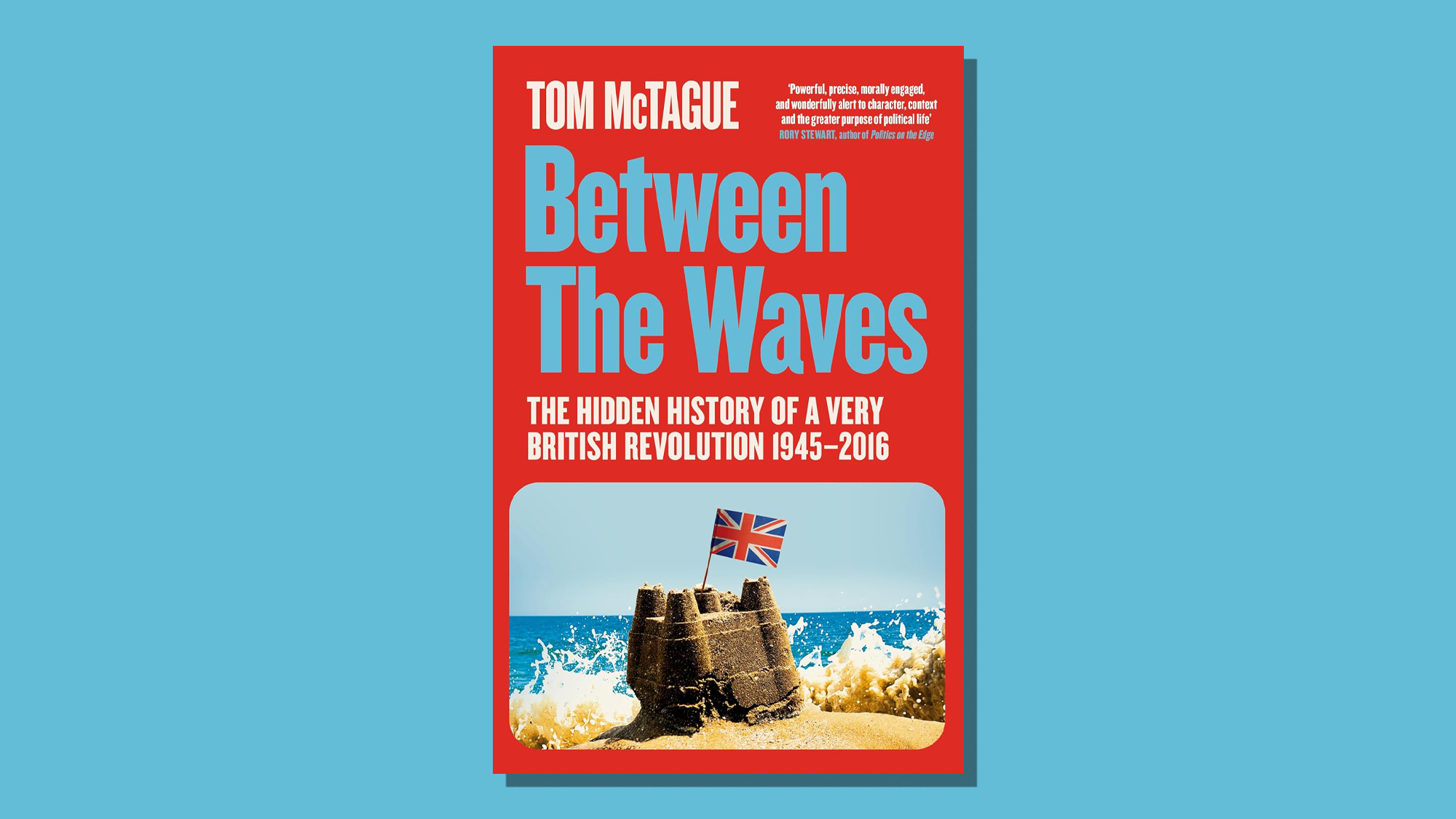Between the Waves: a ‘spirited study’ of Britain’s history
This book gives an ‘authoritative, original and wise’ explanation of the country’s relationship with the EU

A free daily email with the biggest news stories of the day – and the best features from TheWeek.com
You are now subscribed
Your newsletter sign-up was successful
Why did the United Kingdom leave the European Union? Perhaps, said Michael Gove in The Spectator, “it might be better to ask why did it ever join?”
In this “panoramic history of British – and continental – politics from 1942 to the present day”, Tom McTague sets himself the “formidable task” of explaining the “two most consequential decisions” of the post-war period: to join the European Economic Community in 1973, and to leave the EU 47 years later.
While much of the focus is on high politics, and “elite figures” such as Charles de Gaulle and Harold Wilson, the book is also a “history of ideas” – which traces the intellectual currents that led to the initial quest for European integration, and the later rise of euro-scepticism. Despite this being a debate that has “polarised politics and shattered friendships”, McTague, to his credit, remains above the fray, and gives both sides a fair hearing. “It is hard to think of many books which leave one admiring both Edward Heath and Enoch Powell more.” The result is “authoritative, original and wise”, and essential reading for anyone wishing to understand contemporary Britain.
The Week
Escape your echo chamber. Get the facts behind the news, plus analysis from multiple perspectives.

Sign up for The Week's Free Newsletters
From our morning news briefing to a weekly Good News Newsletter, get the best of The Week delivered directly to your inbox.
From our morning news briefing to a weekly Good News Newsletter, get the best of The Week delivered directly to your inbox.
McTague opens his narrative, rather unexpectedly, in Algiers in late 1942, said Dominic Sandbrook in The Times. There, three figures were present who would play a key role in history: Churchill’s representative in north Africa, Harold Macmillan, who oversaw Britain’s first application to join the EEC in 1961; the French bureaucrat Jean Monnet, a founding father of the European project; and Powell, then a “Nietzsche-obsessed” intelligence officer who would become the first prominent euro-sceptic. Over the “thoughtful and richly provocative” pages that follow, McTague describes how Britain was drawn into the “Continental club”, but never with much enthusiasm: for most of its politicians, EU membership was a “regrettable necessity”. Such half-heartedness, he shows, ultimately paved the way for Brexit.
It is when dealing with the Brexiters, and where “their ideas came from”, that this “spirited study” really excels, said N. Piers Ludlow in Literary Review. McTague offers illuminating portraits of euro-sceptic intellectuals such as Maurice Cowling and Roger Scruton, and “skilfully sets out” how their ideas were embraced by the Tory Party. Yet his grasp of earlier periods is less assured – such as the influence of Britain’s commonwealth interests on its European policy. As a result, this book is very good at explaining Brexit; but it isn’t quite the “broad history” of Britain’s troubled relationship with Europe that McTague wanted it to be.
A free daily email with the biggest news stories of the day – and the best features from TheWeek.com
-
 How the FCC’s ‘equal time’ rule works
How the FCC’s ‘equal time’ rule worksIn the Spotlight The law is at the heart of the Colbert-CBS conflict
-
 What is the endgame in the DHS shutdown?
What is the endgame in the DHS shutdown?Today’s Big Question Democrats want to rein in ICE’s immigration crackdown
-
 ‘Poor time management isn’t just an inconvenience’
‘Poor time management isn’t just an inconvenience’Instant Opinion Opinion, comment and editorials of the day
-
 Bad Bunny’s Super Bowl: A win for unity
Bad Bunny’s Super Bowl: A win for unityFeature The global superstar's halftime show was a celebration for everyone to enjoy
-
 Book reviews: ‘Bonfire of the Murdochs’ and ‘The Typewriter and the Guillotine’
Book reviews: ‘Bonfire of the Murdochs’ and ‘The Typewriter and the Guillotine’Feature New insights into the Murdoch family’s turmoil and a renowned journalist’s time in pre-World War II Paris
-
 6 exquisite homes with vast acreage
6 exquisite homes with vast acreageFeature Featuring an off-the-grid contemporary home in New Mexico and lakefront farmhouse in Massachusetts
-
 Film reviews: ‘Wuthering Heights,’ ‘Good Luck, Have Fun, Don’t Die,’ and ‘Sirat’
Film reviews: ‘Wuthering Heights,’ ‘Good Luck, Have Fun, Don’t Die,’ and ‘Sirat’Feature An inconvenient love torments a would-be couple, a gonzo time traveler seeks to save humanity from AI, and a father’s desperate search goes deeply sideways
-
 A thrilling foodie city in northern Japan
A thrilling foodie city in northern JapanThe Week Recommends The food scene here is ‘unspoilt’ and ‘fun’
-
 Tourangelle-style pork with prunes recipe
Tourangelle-style pork with prunes recipeThe Week Recommends This traditional, rustic dish is a French classic
-
 Samurai: a ‘blockbuster’ display of Japan’s legendary warriors
Samurai: a ‘blockbuster’ display of Japan’s legendary warriorsThe Week Recommends British Museum show offers a ‘scintillating journey’ through ‘a world of gore, power and artistic beauty’
-
 BMW iX3: a ‘revolution’ for the German car brand
BMW iX3: a ‘revolution’ for the German car brandThe Week Recommends The electric SUV promises a ‘great balance between ride comfort and driving fun’